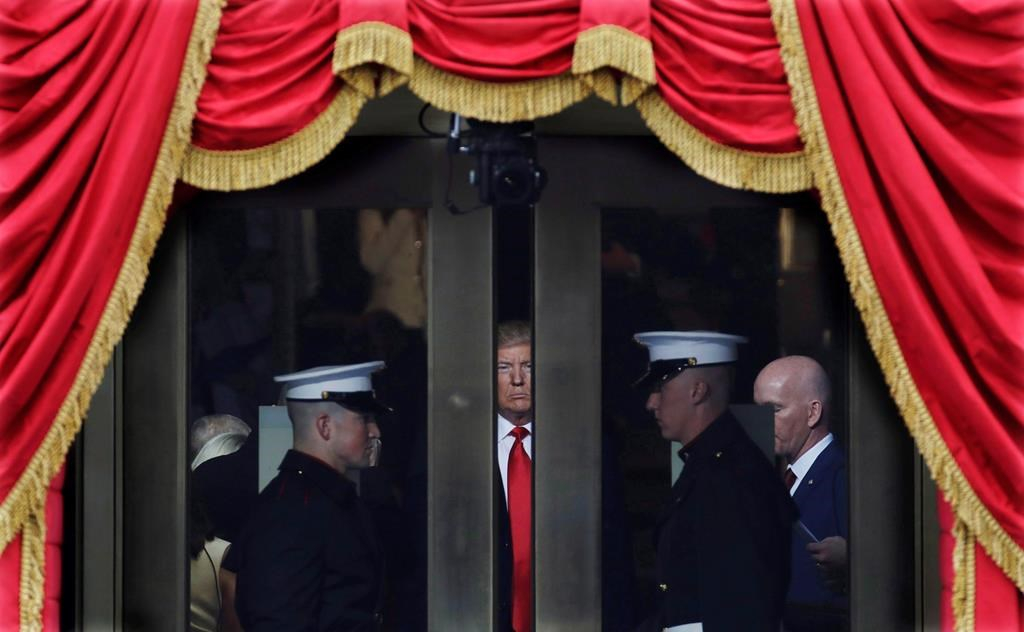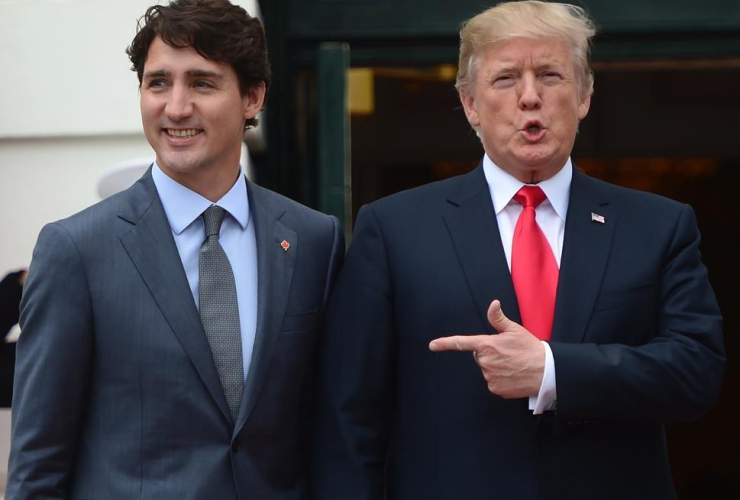In the political ecosystem derided so frequently by the incoming president as a swamp, the jitters were palpable a year ago, its denizens perturbed by the prospect of dealing with, working for, and answering to the unpredictable political animal sloshing into their midst.
Washington braced for Donald Trump.
Its residents adopted a variety of coping mechanisms to deal with an incoming president who received fewer votes here than any Republican, ever, in a town that never votes Republican — just four per cent.
Some raced for the exits, sending out CVs and skipping town. Some needed counselling — especially foreign-born children fearing deportation. Some went to the dermatologist.
Dr. Tina Alster described a more than 30-fold increase in requests for a stress-relieving Botox procedure.
When people started coming in to get fixed up for their TV appearances before inauguration day, they complained about tooth-grinding, jaw-clenching stress, and she suggested an injection into the temporomandibular muscle over the jaw. Word got around. People kept coming — and kept ordering, once or twice a day, for about six or seven months, the US$400-$600 procedure.
"I was putting a lot of Botox in people's jaw to keep it from clenching," Alster said. "When (Trump) came in, it was crazy."
Some coped with dark humour — especially after Trump and Kim Jong Un started trading tit-for-tat insults.
Some did more than muse about nuclear catastrophe: they prepared.
Norad Shelter Systems swears it sold four times more nuclear bomb shelters this year, with half sold in Washington. The Texas-based company won't offer specific figures, citing questions of security and propriety as most of its customers are military or corporate.
Norad called it the second-biggest spike in sales in the four-decade history of a company that builds, for between $172,500 and $453,000, units with electricity, microwaves, DVD players, and screens with digital vistas, allowing groups to bide their time while radiation levels recede to normal.
"Since Trump took office we've doubled our production — twice," said Walton McCarthy, the company's principal engineer.
"Most people in D.C. think — and this is their term, not mine — that President Trump is an elephant in a glass factory.... They think he tends to inflame, rather than diffuse...
"I'm ready to give a commission — to him and (the North Korean leader)."
The abundance of military infrastructure is but one example of how Washington defies its pop-culture stereotype as a mono-dimensional political town, dripping in cloak-and-dagger partisanship.
In truth, it's a town teeming with nerds.
A routine dinner party in Washington might include an expert on fisheries from the World Bank, an economist from the IMF, a nuclear-policy expert from a think-tank, a political staffer, and someone who works in security but who can't really discuss what he does.
Thousands of journalists work here, too.
At a gathering this week, several marvelled at the dual reality of their new existence — the surge in story material, subscriptions, ratings; along with the spike in insults, fake-news critiques, even threats.
"I absolutely receive death threats," CNN's Jim Acosta told a public forum on press freedom. April Ryan of American Urban Radio concurred: ''For me it's real. I've been getting death threats... The FBI is on speed dial.''
John Roberts of Fox News sympathized, but said maybe some colleagues had been unfair to the president — quick on the draw for a negative story, even when it's wrong.
One thing you don't often hear at a local get-together is, "I voted for Trump."
Such admissions tend to provoke reactions: awkward silence, curious queries or heated debate. At one pre-Christmas get-together featuring dozens of people from different walks of Washington life, the host pointed out the one Republican guest. He wasn't a Trump Republican, either.
A few Republican staffers skipped town too, rather than work under Trump. Senators Jeff Flake and Bob Corker followed. It was even truer of the young globe-trotting internationalists in the civil service, who left in droves.
Amid plummeting morale at the State Department, the American Foreign Service Association reported that 60 per cent of top-ranking career diplomats have left, with new applications to join the foreign service falling more than half.
Lobbyists fared slightly better. There were still about 11,000 in town, a shade less than the number for 2016, according to preliminary figures compiled by the Center for Responsive Politics.
The more Trump-critical lobbyists will admit to the same mixed feelings as the speakers at the media event, and the bomb-shelter salesman — loving the businesses, but not the man generating some of it.
The whole town was kept busy, in an eventful year. It featured major tax reform, new pipeline permits, withdrawal from the Paris climate treaty, ISIS being wiped from its territory, NAFTA negotiations, all of this competing for attention with made-for-TV tales about secret payouts to porn stars and Russia investigations and so many public feuds.
Some people are ending the year with the same paralyzing uncertainty they felt on Jan. 20, 2017. Deportation threats have risen in this city's large El Salvadoran community, one of several groups to lose major immigration programs.
In other ways, life returned to normal.
People retreated to their partisan trenches — the day after the inauguration, a massive women's march began energizing Democrats, and now they hope to reconquer the Congress this year.
Republicans got in line behind Trump, or got out. The president's supporters had their own local safe space, in the lobby bar of the Trump International Hotel on Pennsylvania Avenue.
So the city's political forces returned to their natural state: fighting, stymieing each other, preparing for the next election, which in America is always two years away. Partisan paralysis delivered a politically symbolic memento for the anniversary: A federal government shutdown.
Normal rhythms even returned at the dermatologist's office. By summer, the number of patients seeking Botox shots trickled down to 2017 levels.
"It becomes the new norm," Alster said.
''People have become used to the bomb-throwing and tweets... Now people are kind of just rolling with it... Every day there's a bit of turmoil, but we've just gotten used to these things happening every day.''




Comments